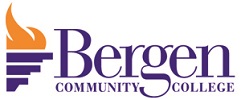Find your path to success with a diverse range of more than 120 degree, certificate, and continuing education programs.
About
Turning Point students participate in 260 hours of work-based learning which includes a rotation of on-campus internships during year one and an off-campus internship in year two that is chosen based on each individual’s career pathway specialization.
The program’s goal is to provide an inclusive postsecondary experience that promotes skill development and leads to competitive employment. The program utilizes person-centered planning, curriculum modules and work-based learning designed to assist students in job exploration and foster career awareness. Students work closely with peer mentors, academic counselors, and career mentors to develop workplace readiness skills, as well as skills for self-advocacy and self-determination. Vocational plans for each student are customized to meet individual needs, interests and abilities.
Career Pathway Credentialing Courses
Students choose a career pathway course that they take in their third semester. These courses provide industry specific foundational knowledge and prepare students to earn industry-valued credentials as they prepare for competitive employment. The current course offerings include:
- Certified Logistics Associate
- Child Development Associate
- Dietary Aide
- Hospitality for Guest Service Professionals
- Office Assistant with Electronic Records Management
Career Services
Throughout the 4-semesters, students are job sampling in on campus and community-based internships. We have two employment specialists on staff and additional job coaches contracted for internships. Career mentorship, benefits counseling, support from peer mentors, participation in campus clubs and team-oriented service learning projects enhance the vocational experience.
Outcomes
Data shows that youth with intellectual disabilities who attend an inclusive postsecondary program report higher rates of employment and wages than those who do not. Our current employment rate for graduates consistently exceeds the national average for people with intellectual disabilities.
